Hades 2 Review – A Sequel That Elevates Supergiant’s Masterpiece
Hades 2 has arrived, marking the full return of Supergiant Games’ acclaimed roguelike series. The studio’s latest release places players in the role of Melinoë, daughter of Hades and Persephone, who takes up arms against her grandfather, Chronos, the Titan of Time.
The official launch date of Hades 2 was set for September 25, 2025, following more than a year of development in early access.
This review is based on coverage originally published by Leana Hafer for IGN, who praised the sequel as “some of Supergiant’s best work on nearly every level,” calling attention to how it refines, expands, and remixes the foundations laid by the first game.
The premise begins abruptly, echoing the direct narrative momentum of its predecessor. Melinoë is thrust into action with little exposition, a deliberate choice that emphasizes discovery through play. For players who step into the sequel without replaying Hades, or those who skipped the early access build, the opening hours may feel disorienting. Yet as the cast of characters unfolds, that initial uncertainty is replaced by a deep connection to a rich ensemble of gods, titans, and mythical figures.
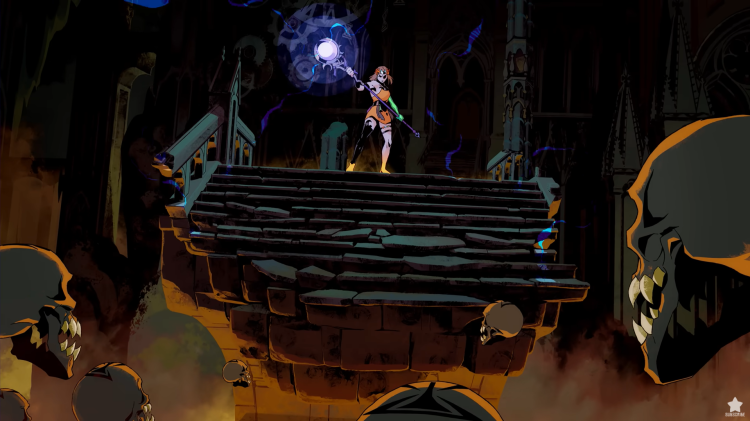
Supergiant’s art and character design again take center stage. Static portraits gain subtle animation details that enhance their presence. Nemesis emerges as a rival-turned-ally in a dynamic arc, while Hecate embodies both mentor and reluctant guardian. Olympians return with layered personalities that go beyond archetypes, and voice acting across the board supports this nuanced writing. The game thrives on its ability to make interactions meaningful, with dialogue systems capable of reacting to hundreds of contextual variations.
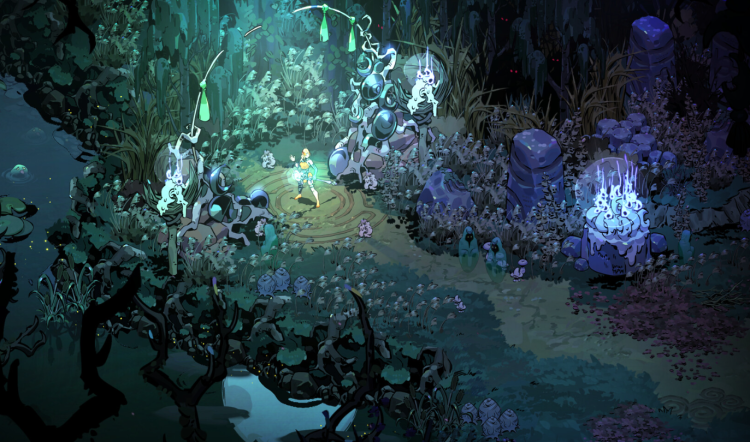
Mechanically, Hades 2 builds on its roguelike structure by offering two distinct nightly paths. Players can descend into Tartarus to confront Chronos or ascend to Mount Olympus to fight against his allies’ siege. Each route offers unique environments, bosses, and branching structures that keep repeated runs fresh. For example, the surface city of Ephyra presents players with ten streets, each containing a different challenge, and requires careful planning on which battles to prioritize. This dual-route system effectively doubles the variety of runs and prevents the repetition that can weaken roguelike replayability.
Combat has undergone meaningful changes with Melinoë’s witch-inspired playstyle. Where Zagreus embodied the warrior, Melinoë channels magical control and strategic resource management. Her weapons include dual torches for rapid mobility, a massive axe that transforms into a scythe, and other variations that dramatically shift combat dynamics. A universal Cast ability introduces battlefield traps, encouraging tactical placement against tougher enemies. This thematic distinction ensures that even though the structure resembles the original, the feel of combat is wholly different.
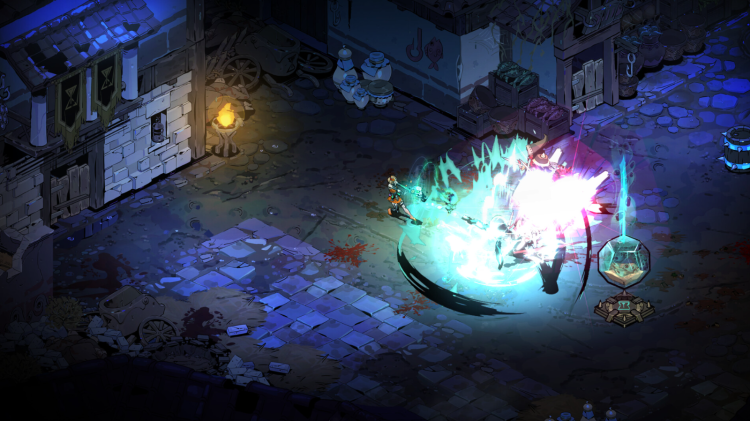
Supergiant has also reworked boons. Every Olympian offers valuable options, with none relegated to filler status. Elemental affinities add another strategic layer, as boons now interact through essences that trigger conditional bonuses. Selene, representing the moon, introduces Hex abilities, functioning as ultimate skills that can be customized through talent trees during runs. These systems encourage experimentation and reward synergy-building, ensuring each attempt feels distinct.
Progression extends beyond combat. Permanent upgrades via Hecate’s cauldron, farming elements, and animal familiars enrich the loop between runs. These additions strike a balance between variety and accessibility, offering new systems without overwhelming players. Unlike some sequels that inflate mechanics, Hades 2 curates them with deliberate pacing, revealing fresh content steadily across dozens of hours.
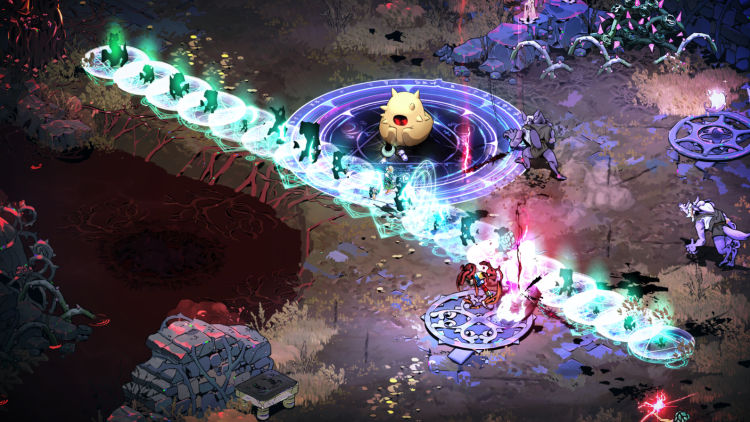
Music once again defines the game’s emotional resonance. Darren Korb’s soundtrack blends ethereal melodies, lofi beats, and heroic motifs into a cohesive identity. Tracks such as “Moonlight Guide Us,” performed with returning vocalist Ashley Barrett and Melinoë’s actor Judy Alice Lee, elevate pivotal moments with haunting beauty. Boss battles, such as the Scylla and the Sirens fight, integrate music directly into gameplay, shifting tracks dynamically as enemies are defeated. The result is a score that matches the game’s duality of melancholy and energy.
On technical grounds, Hades 2 runs smoothly across platforms, though handheld readability on the Switch 2 poses occasional challenges. Zoomed-out perspectives in busy fights can obscure small enemy animations, making portable mode less ideal for precision. Docked or PC play resolves these issues, highlighting the game’s visual clarity and detail.
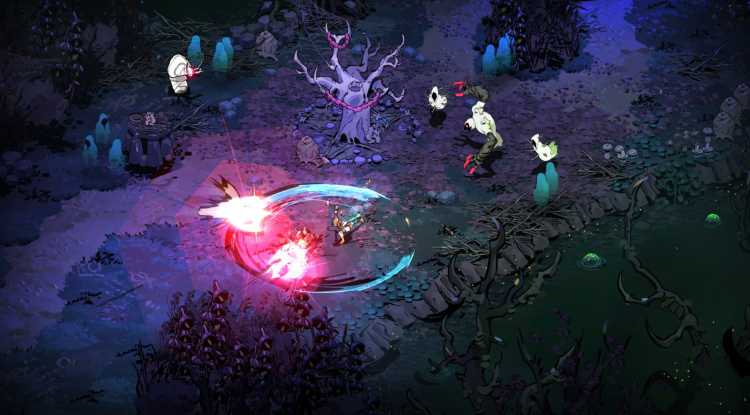
The sequel’s narrative structure mirrors the original’s cyclical storytelling but with added flexibility. The ability to alternate routes allows players to sidestep bosses that prove frustrating, offering a natural pacing relief. Story progression demands victories across both paths, ensuring variety while still guiding players toward the climactic confrontation with Chronos. Along the way, character arcs intertwine with gameplay in ways that reinforce investment. Relationships with figures like Nemesis and Hecate provide emotional grounding, and the writing maintains the blend of humor, tragedy, and mythic reinterpretation that made the first game memorable.
Supergiant also preserves the sense of discovery central to the original. Dialogue snippets, environmental details, and hidden mechanics appear with startling frequency. Even after fifty hours, the review notes, new interactions and upgrades continue surfacing, underscoring the depth of content. This longevity is enhanced by design choices that reward curiosity and experimentation, ensuring the loop of dying and retrying feels purposeful rather than repetitive.
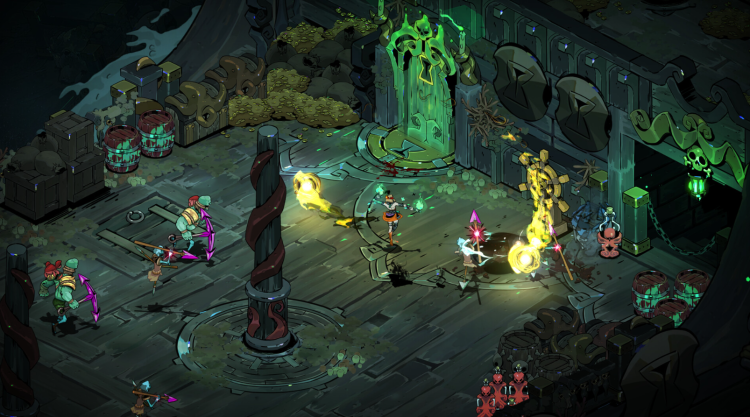
The game’s humor remains sharp. Encounters such as the Sirens’ pop-rock performance combine absurdity with challenge, while dialogue between gods regularly subverts expectations of mythological gravitas. At the same time, Hades 2 retains the introspective quality of its predecessor, reflecting on family, legacy, and resilience. This tonal balance contributes to its staying power, inviting players to return not only for mechanical mastery but also for emotional engagement.
Taken as a whole, Hades 2 demonstrates how to construct a sequel that respects its foundation while innovating meaningfully. Its combat systems are deeper, its narrative structures more varied, its characters more richly drawn, and its presentation more polished. Far from diluting what worked in the first game, it amplifies those elements while introducing enough fresh ideas to stand apart.
The final verdict places Hades 2 among the best works Supergiant has produced. The studio proves capable of following one of the most celebrated roguelikes in gaming history with a successor that equals and, in many respects, surpasses it. Melinoë emerges as a protagonist as compelling as Zagreus, while the expanded systems secure the game’s place as a landmark in its genre.
Hades 2 is available now on PC and Nintendo Switch/Switch 2. For those seeking a roguelike that blends exhilarating action with layered storytelling and striking artistry, it offers an experience that both honors and redefines its lineage.

Comments